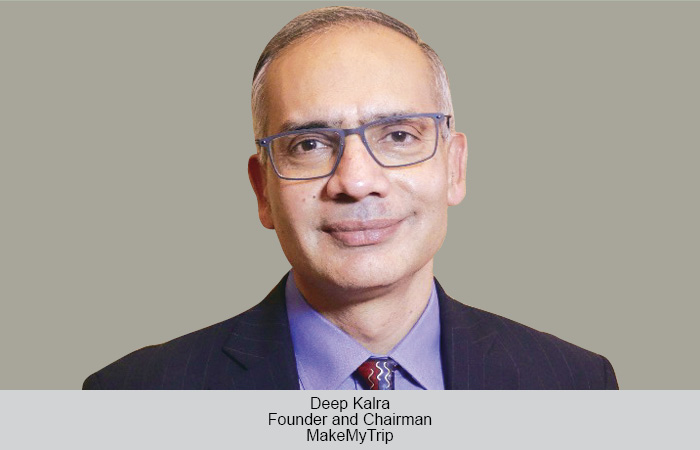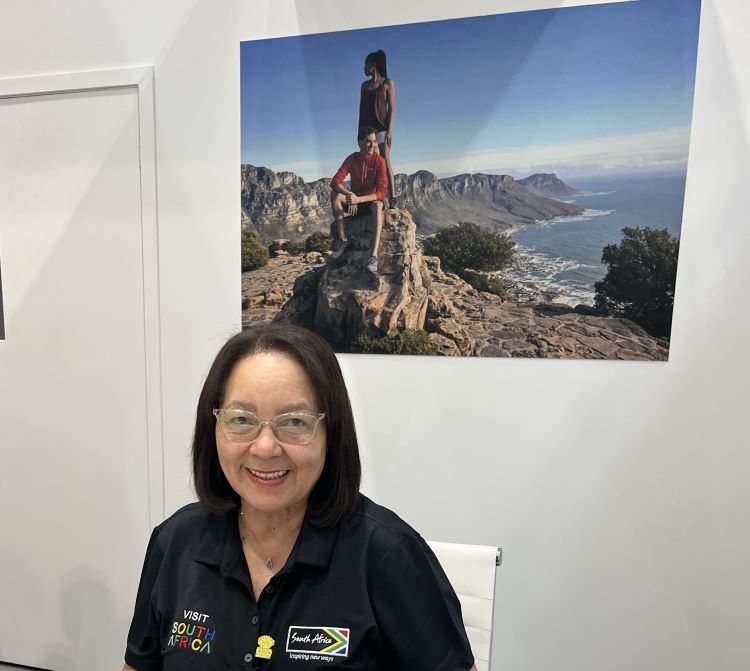The tourism industry stands at a crossroads, where adaptation, innovation, and collaboration are key to growth. Going by the trends and embracing new strategies, travel agents and tour operators can remain competitive and play a vital role in shaping India’s tourism future—a journey rich with challenges and opportunities.
TT Bureau
Deep Kalra, Founder and Chairman, MakeMyTrip, addressing the 18th CII Annual Tourism Summit, captivated the industry leaders with his insights into the evolving landscape of Indian tourism. Drawing from his 25 years in the travel industry, he shared key strategies for adapting to new trends, engaging travellers and positioning India as a global tourism powerhouse. His vision offered a roadmap for industry colleagues looking to thrive in a rapidly changing world. Here is a breakdown of the transformative ideas he shared, presented as actionable takeaways for every travel professional.
Sightseeing to experiences
Kalra highlighted a significant shift among travellers—particularly youth—toward immersive, experience-driven journeys. Today’s tourists seek deeper connections with the places they visit, favouring authentic cultural interactions over traditional sightseeing.
Action for agents: Design packages that focus on unique experiences, such as culinary tours, heritage walks, and interactions with local communities.
Middle-class travellers
India’s burgeoning middle class is driving a boom in leisure travel, with many opting for premium experiences. Kalra noted a 25 per cent growth in travellers taking more than three leisure trips annually, often indulging in luxury accommodations and business-class flights.
Action for agents: Offer mid-range to luxury travel packages that cater to this demographic’s aspirations for comfort and exclusivity.
The homestay revolution
Homestays, once a niche option, have become mainstream. Travellers now prefer these intimate, personalised accommodations, driven by a desire for offbeat, crowd-free experiences—a trend accelerated by the pandemic.
Action for agents: Partner with local homestay providers to offer curated, authentic stays that
highlight the charm of lesser-known destinations.
Art of storytelling
Strong narratives make destinations unforgettable. Kalra pointed out how international tourism boards excel in storytelling and urged Indian operators to do the same.
Action for agents: Invest in creative content that tells the stories of destinations—whether it’s the mystique of a heritage site or the charm of a bustling local market.
Digital platforms
Social media and digital platforms have become key drivers of travel decisions, with travellers discovering destinations through Instagram, Facebook, and online reviews.
Action for agents: Strengthen your digital presence by sharing visually engaging content, collaborating with influencers, and optimising your online platforms.
Embracing sustainability
Kalra stressed the importance of sustainable tourism, highlighting trends like carbon-neutral holidays and eco-friendly travel.
Action for agents: Incorporate sustainability into your offerings by promoting eco-conscious hotels, minimising plastic use, and encouraging responsible travel behaviour.
Innovative personalisation
Hyper-personalisation, powered by AI and data analytics, is the future of tourism. Kalra described how technology enables tailored experiences for every traveller.
Action for agents: Use customer data to create personalised itineraries and recommendations, ensuring every trip aligns with the traveller’s unique preferences.
Collaboration key to growth
Kalra said the future of tourism lies in collaboration—between industry players, government bodies, and local communities.
Action for agents: Partner with stakeholders to offer enriched experiences, build trust, and contribute to the holistic growth of the tourism ecosystem.
Today’s Indian traveller is versatile, adventurous, and demanding—equally at ease trekking in the wilderness or indulging in luxury resorts. This evolving dynamic underscores the need for the tourism industry to adapt, innovate, and collaborate. Kalra’s address served as a wake-up call, highlighting strategies that can help travel agents and tour operators stay competitive while playing a pivotal role in shaping the future of Indian tourism.
 TravTalk India Online Magazine
TravTalk India Online Magazine





